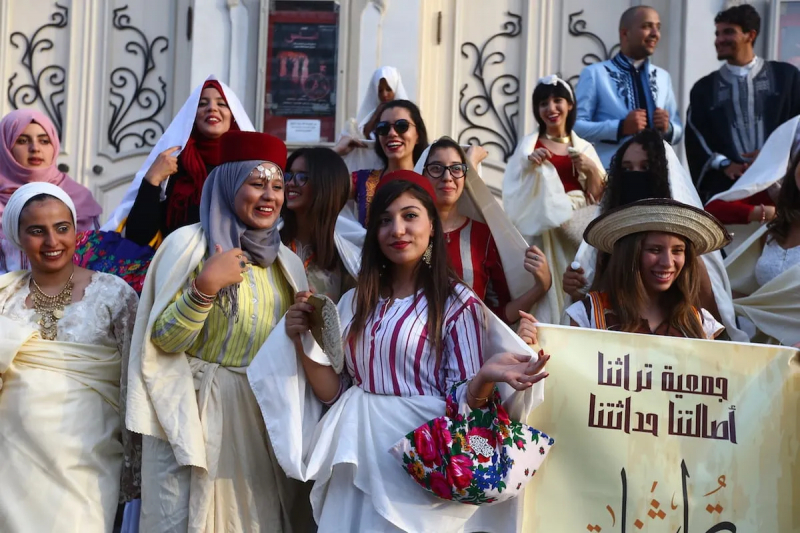Etiquette
Tunisians' interpersonal relationships are relatively egalitarian, but there is a strong sense of etiquette. Some areas have modesty codes for women. Women in traditional urban society were expected to be cautious in their behavior. They were supposed to limit their trips outside the house to culturally acceptable destinations like the public bath or the graves of their relatives in the cemetery. In certain sectors of Tunisian urban society, women cover their heads and bodies in public with the safsari, a rectangular white cloth. Rural women dress differently than urban women, but they may adopt urban forms when visiting the city. These older practices are becoming increasingly rare, and the "modern" veil has been officially discouraged, so there is no uniform dress code.
Men are also expected to respect one another. A man should not smoke in front of his father, and he should not carry his own child in front of his father. Brothers may visit different cafs so that the presence of a brother does not interfere with relaxation. Traditional male attire included loose trousers and a shirt, possibly layered with a robe and topped with a red-felt skullcap. Again, practices are less uniform than in the past, with differences reflecting degrees of modernity, as well as education and income levels.









